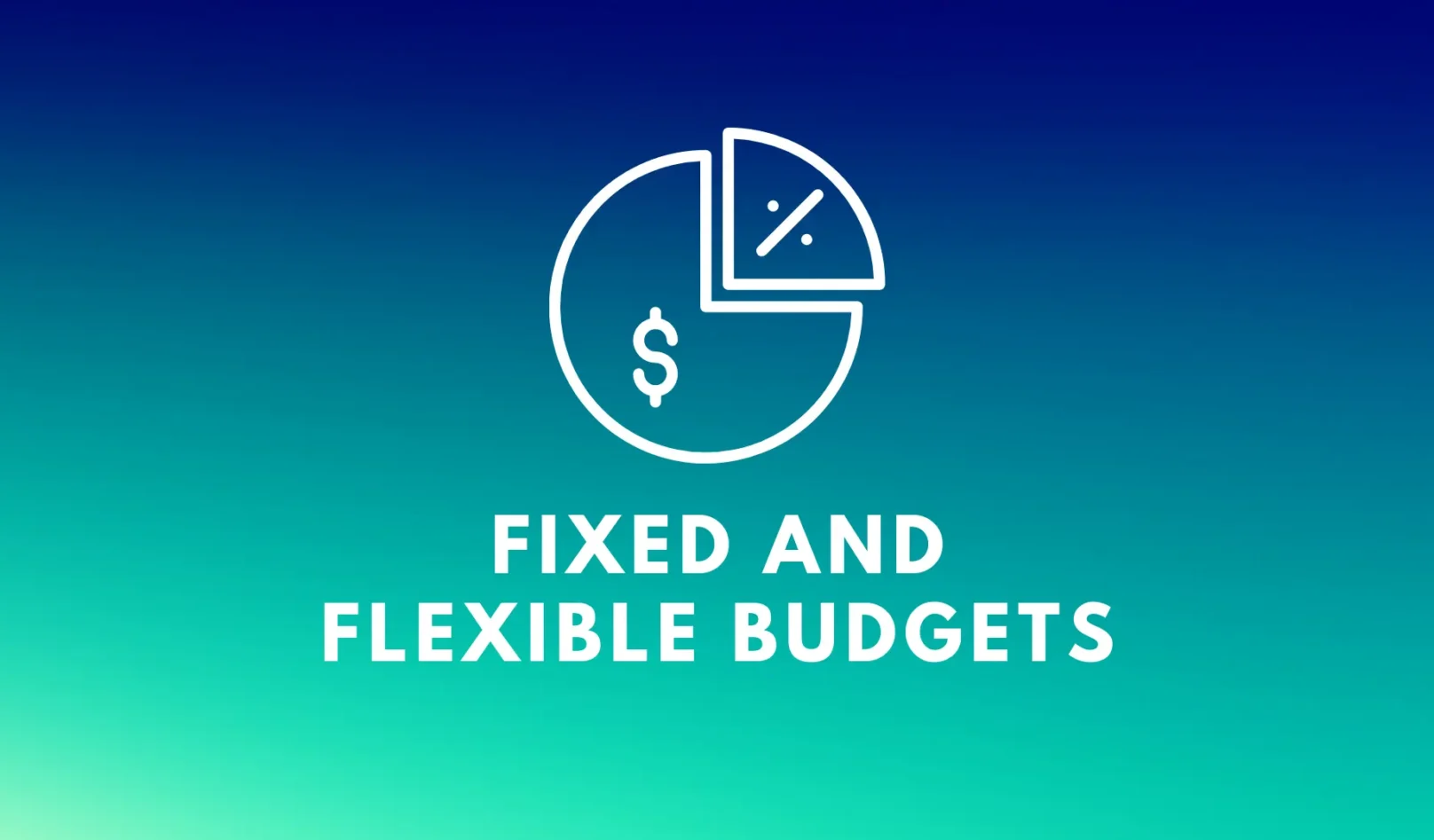
For any business, organization, or even personal household, budgeting is a critical component of financial planning and management. Appropriate budgeting establishes predefined limits on spending, helps make financially sound decisions, and aids in evaluating performance. There are two main types of budgets that entities can utilize – fixed budgets and flexible budgets. Each budget type has its own advantages and disadvantages. Understanding the key differences between fixed and flexible budgets is important for determining which method is most suitable depending on the situation.
This article will examine fixed and flexible budgeting, major differences between the two approaches, when to use each type, and tips for developing an effective budget.
What is a Fixed Budget?
A fixed budget sets strict spending levels for a specific time period based on estimated revenues and costs that are projected in advance. It does not fluctuate during the budget term to account for changing circumstances.
Definition of a Fixed Budget
- Establishes static revenue and expenditure amounts for a set time period
- Budgeted amounts are not adjusted if actual results differ
- Based on sales, production, and cost forecasts performed in advance
Components of a Fixed Budget
- Revenue forecasts based on estimated sales volume and pricing
- Estimated costs like labor, materials, overhead, admin, etc.
- Predetermined target for profitability
Advantages of Fixed Budgets
- Simple to develop and administer
- Provides definitive spending limits
- Highlights deviations quickly when reviewed
Disadvantages of Fixed Budgets
- Inflexible when conditions change
- Can discourage efficiency improvements
- Not useful for performance evaluation
What is a Flexible Budget?
A flexible budget adjusts spending levels over a period to align with actual revenues and costs. It effectively reforms the budget periodically based on changing business conditions.
Definition of a Flexible Budget
- Periodically adjusts expenditure levels to match actual activity
- Revenues and costs are re-estimated and reset
- Follows the ups and downs of business operations
Components of a Flexible Budget
- Begins with a baseline fixed budget framework
- Resets spending based on revised sales forecasts
- Adjusts cost estimates and targets to changing needs
Advantages of Flexible Budgets
- Accommodates changing business conditions
- More useful for performance measurement
- Encourages efficiency improvements
Disadvantages of Flexible Budgets
- More complex to develop and manage
- Can hide problems with budget discipline
- Allows greater discretionary spending
Major Differences Between Fixed and Flexible Budgets
While fixed and flexible budgets are similar in some ways, there are distinct differences between the two approaches that lead to different benefits and applications.
Adjustability to Changing Conditions
- Fixed budgets do not adjust during the budget term
- Flexible budgets are reformulated periodically to reset targets
This key difference makes flexible budgets more responsive to evolving business environments.
Focus on Cost Behavior
- Fixed budgets focus on total estimated costs
- Flexible budgets focus on variable vs. fixed cost behavior
Flexible budgets’ emphasis on cost behavior supports more accurate budgeting as activity fluctuates.
Usefulness in Performance Evaluation
- Fixed budgets can distort performance measurement
- Flexible budgets provide context for actual results
By recalibrating to current conditions, flexible budgets enable “apples to apples” performance analysis.
Ease of Administration
- Fixed budgets are simpler to manage
- Flexible budgets require more effort
Flexible budgets’ complexity introduces greater effort, but can yield benefits.
When to Use Each Budget Type
Determining whether to implement fixed or flexible budgeting depends on the entity and situation. Their different strengths suit them to particular applications.
Best Applications for Fixed Budgets
- Organizations with steady, predictable activity
- As an annual tool for setting general limits
- For budgeting capital expenditures
The rigid nature of fixed budgets works for stable entities and investments.
Best Applications for Flexible Budgets
- Organizations with fluctuating revenues and costs
- For routine performance measurement
- When incentivizing efficiency improvements
Flexible budgets align better with dynamic organizations and programs.
Selecting the Right Budget Type
- Assess business conditions and variability
- Consider usefulness for control and performance evaluation
- Weigh administrative effort vs. benefits
Evaluate your specific situation to determine if fixed or flexible budgeting is more suitable. Many organizations use a combination, with flexible budgets for operating activities and fixed budgets for longer-term, stable items.
Developing an Effective Budget
Whether you select fixed or flexible budgeting, following sound practices when creating your budget leads to the best results.
Steps for Creating a Budget
- Set budgeting schedule/timeframes
- Gather inputs like historical data
- Develop revenue forecasts
- Estimate costs thoroughly
- Finalize profitability targets
- Secure approval
- Monitor and reconcile regularly
Key Budgeting Best Practices
- Involve managers in building budgets
- Budget conservatively
- Link budget to strategy and goals
- Analyze variances and adjust promptly
- Tie budgets to incentives for greater commitment
Adapting Your Budget Over Time
- Refine estimates using actual data
- Renegotiate targets as conditions dictate
- Shift between fixed and flexible approaches
- Automate recalculations where possible
Continual improvement of your budgeting process over time enhances outcomes.
Conclusion
Every organization can benefit from well-designed budgeting practices that control expenditures and provide standards for performance evaluation. Fixed and flexible budgets offer different advantages based on stability of revenues and costs. Fixed budgets are simpler to manage, while flexible budgets adapt better to change. Weighing their tradeoffs allows selection of the best method or combination for your needs. Following key steps and best practices leads to budgets that deliver the greatest value.
Summary of Key Differences
- Fixed budgets are static, while flexible budgets recalibrate periodically
- Fixed budgets focus on total costs, flexible on cost behavior
- Flexible budgets are more useful for performance measurement
- Fixed budgets are easier to administer than flexible
Carefully choosing between fixed and flexible budgeting approaches and applying them effectively maximizes the benefits of your budget.
Read More: How To Save Money On Home Insurance In Atlanta
